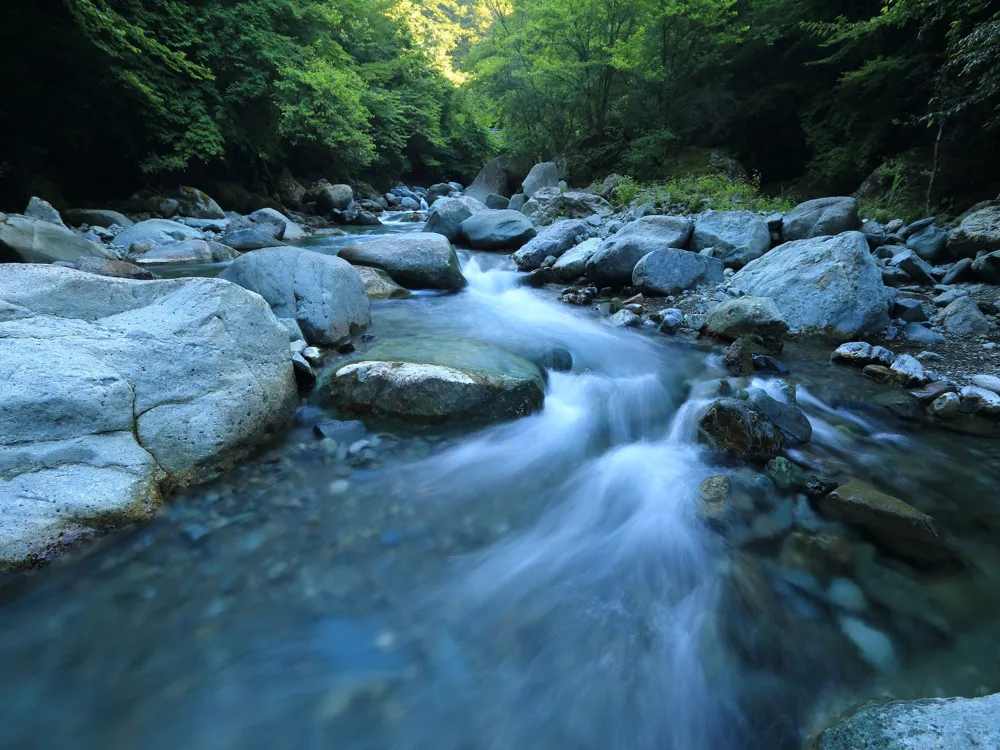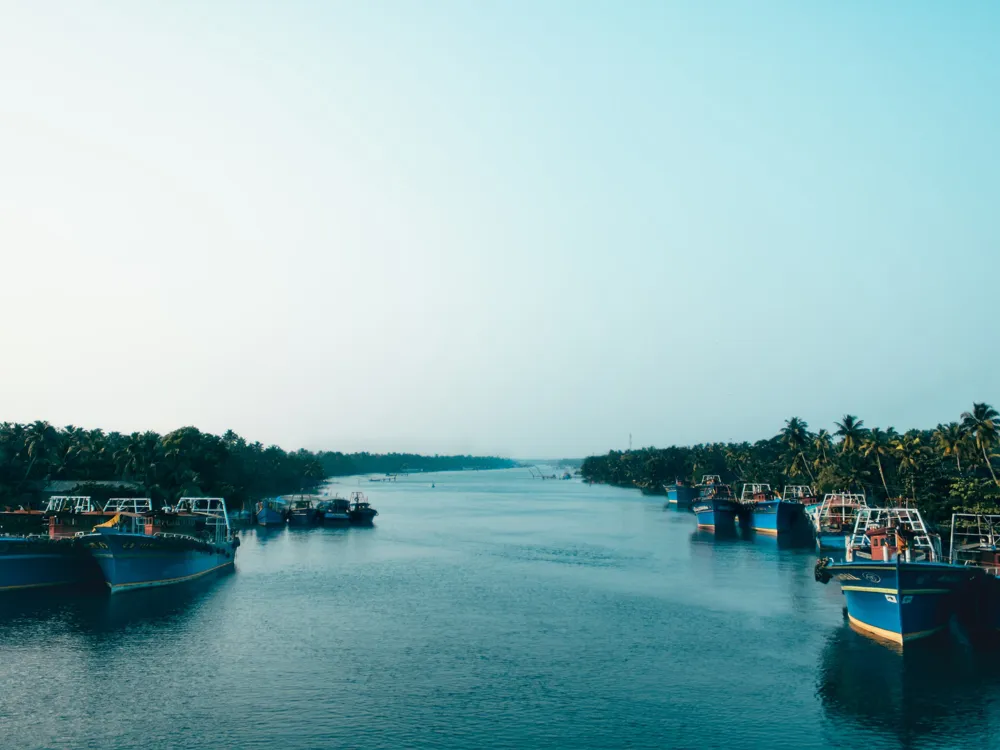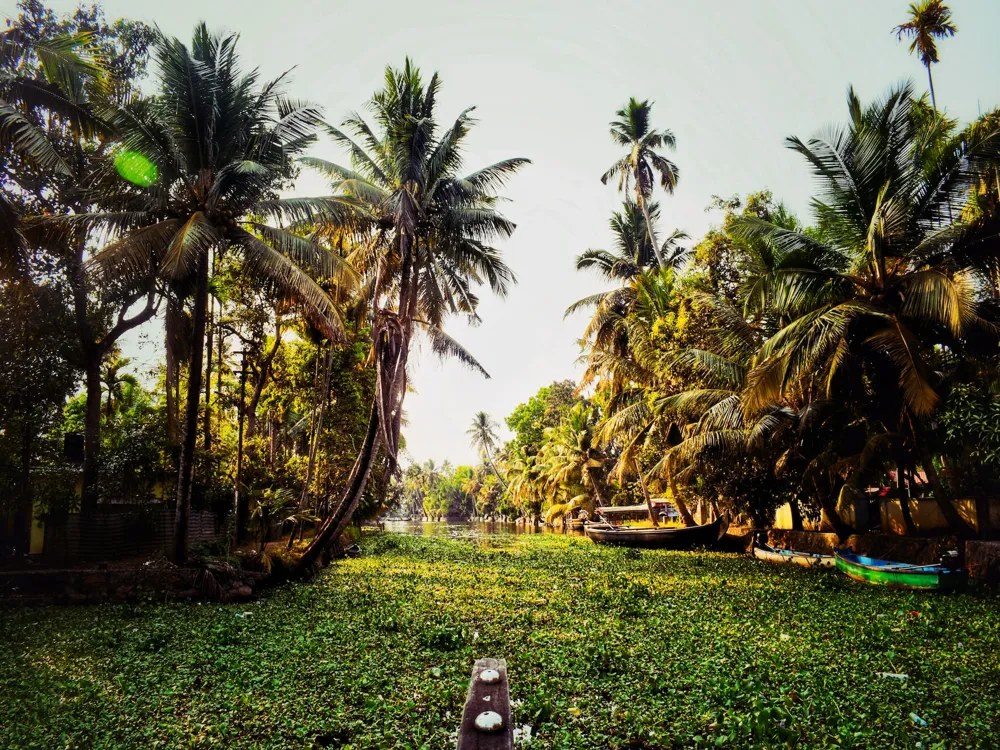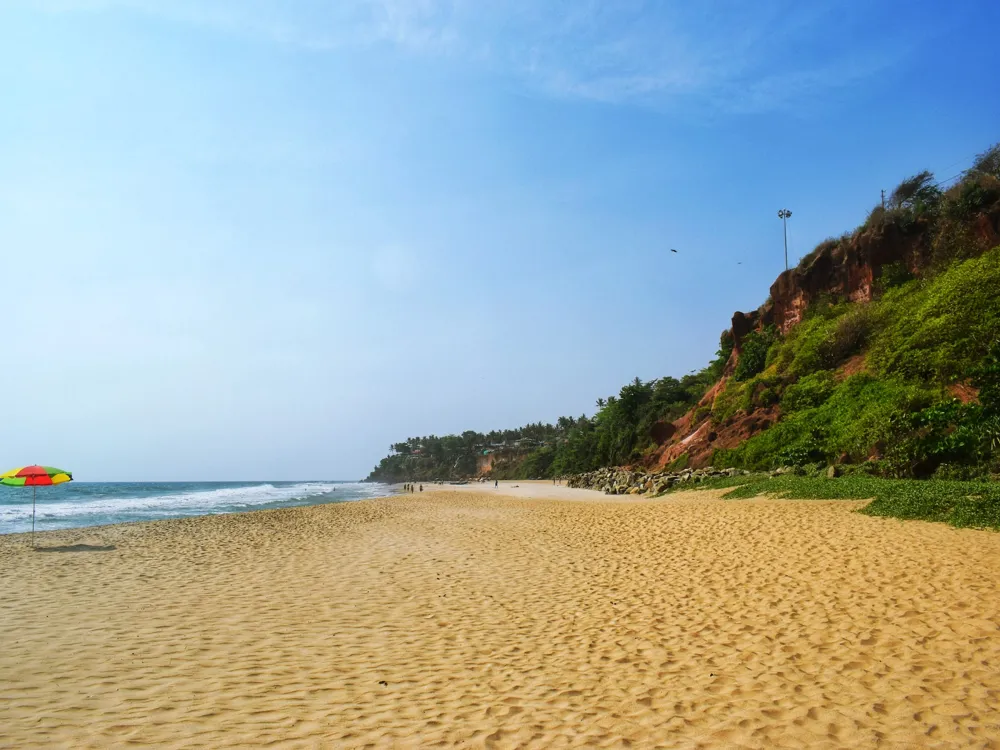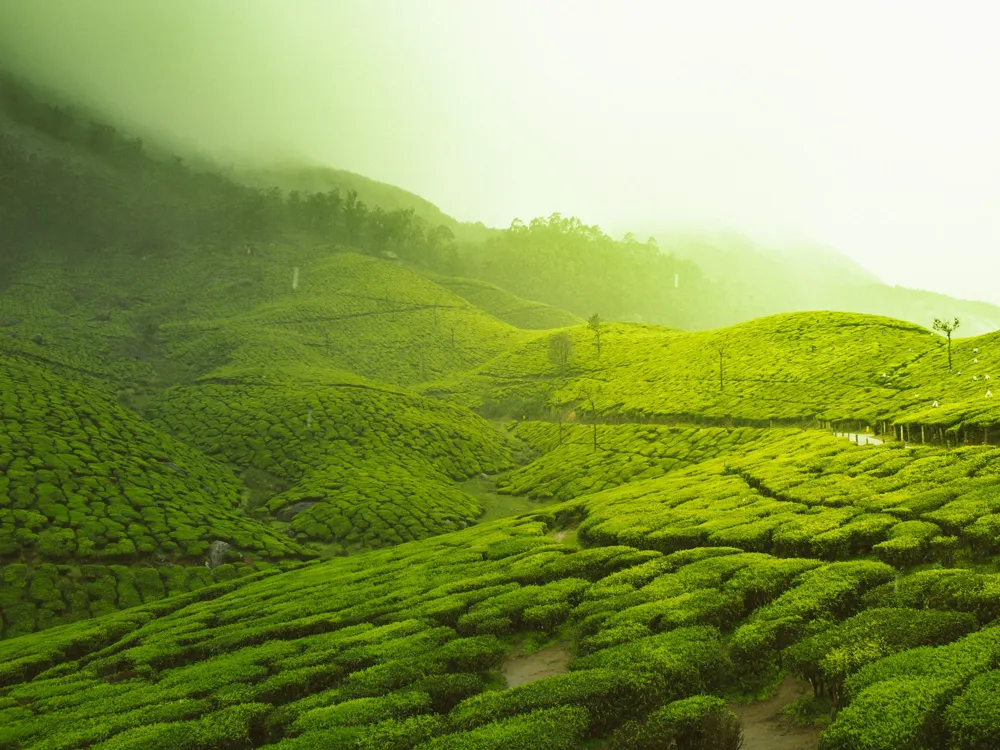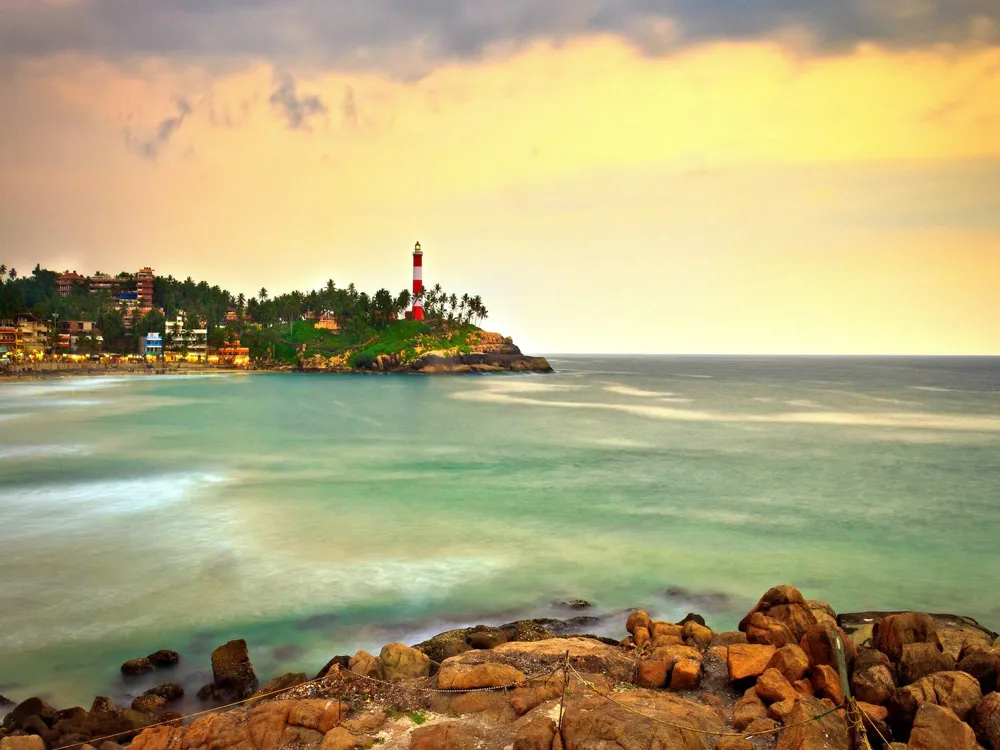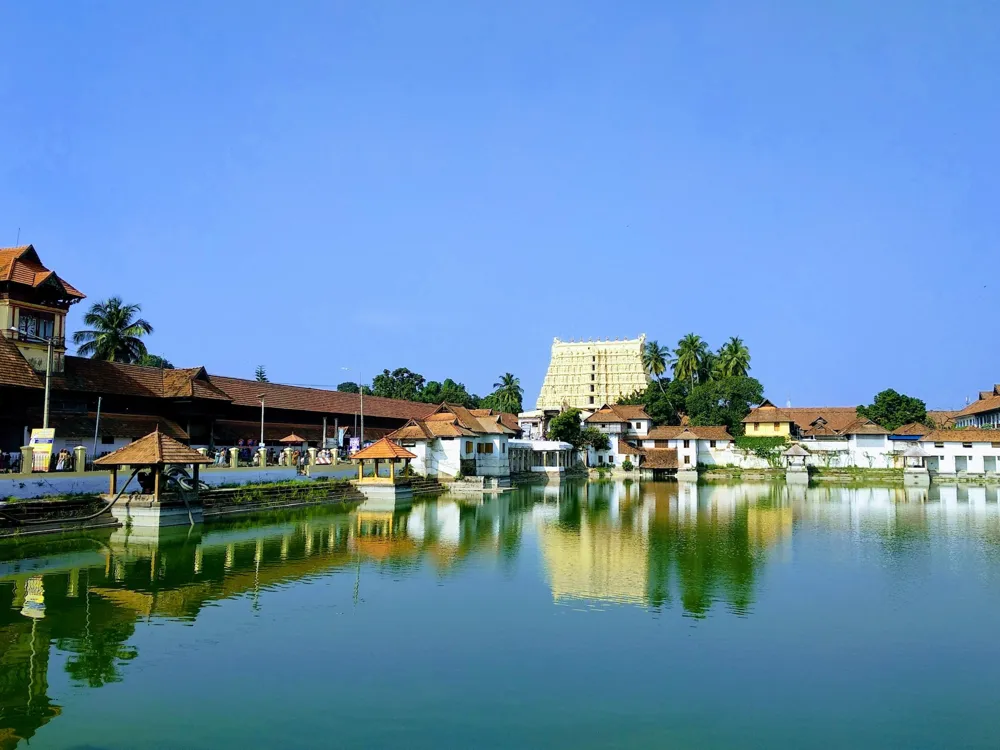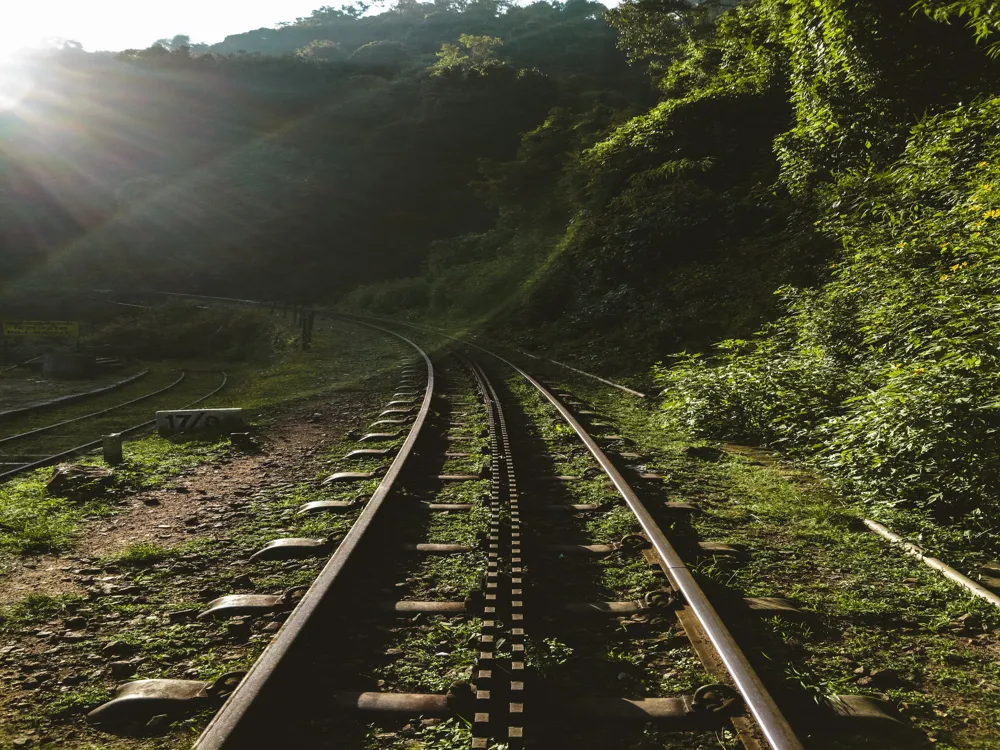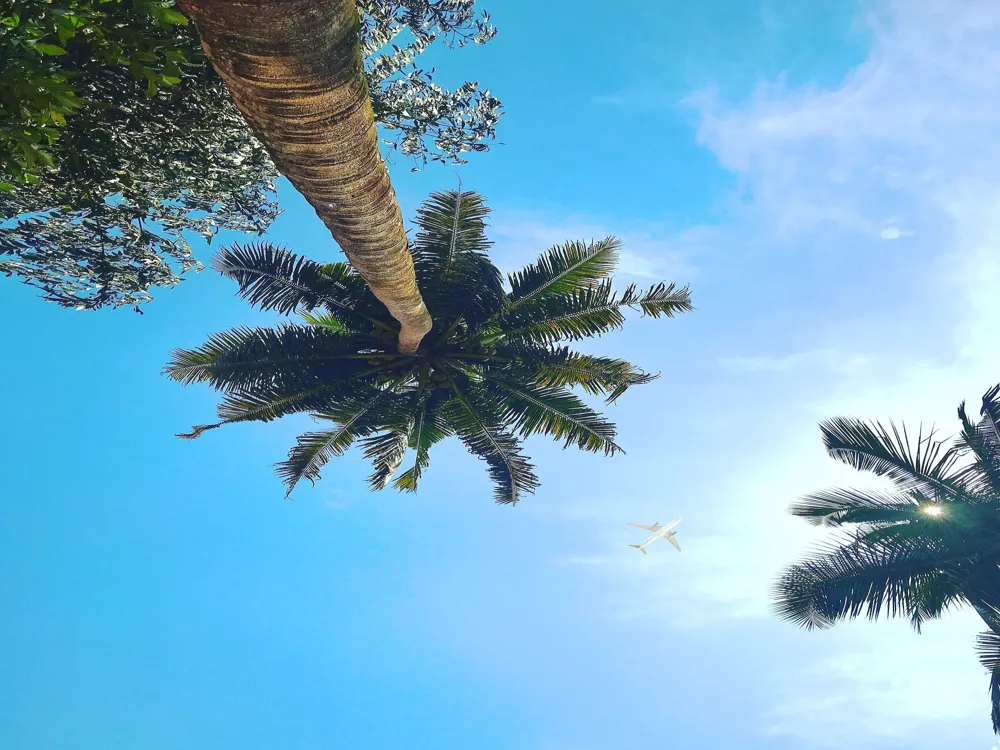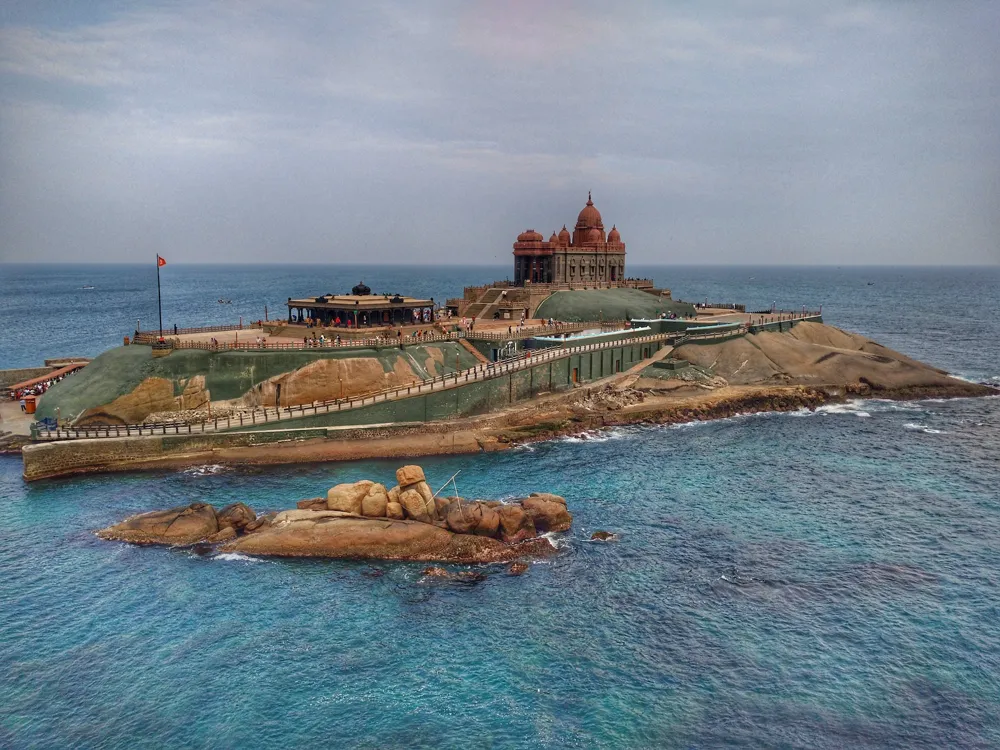Nestled in the heart of Kerala, Pathanapuram is a picturesque town in the Kollam district, renowned for its verdant landscapes and rich cultural heritage. This serene town, situated along the banks of the Kallada River, offers a unique blend of natural beauty and traditional Kerala architecture. Pathanapuram's history dates back centuries, playing a pivotal role in the spice trade era. Today, it stands as a testament to the region's historical significance and its enduring natural charm. The town's economy is primarily based on agriculture, with rubber, pepper, and other spices being the main crops. Additionally, Pathanapuram is home to several educational institutions and religious sites, making it a hub for both learning and spirituality. The town's cultural fabric is woven with various festivals and events celebrated throughout the year, drawing visitors from all over to experience its vibrant traditions. The landscape of Pathanapuram is a tapestry of lush green paddy fields, rubber plantations, and dense forests. This verdant setting not only provides a tranquil backdrop but also supports a diverse ecosystem. The town's proximity to the Western Ghats adds to its ecological importance, housing several rare species of flora and fauna. Pathanapuram's natural setting is ideal for nature enthusiasts and those seeking a peaceful retreat from the hustle and bustle of city life. Pathanapuram’s local cuisine is a delightful experience, offering a taste of authentic Kerala flavors. The town's culinary offerings range from traditional vegetarian dishes to seafood delicacies, each prepared with a blend of spices unique to the region. Local eateries and street vendors provide a glimpse into the town's gastronomic diversity, making it a must-visit destination for food lovers. The architecture of Pathanapuram is a fascinating amalgamation of traditional Kerala style and influences from various historical periods. The town's buildings and structures are characterized by their distinctive sloping roofs, large wooden doors, and intricately carved pillars, a reflection of the region's architectural heritage. These features are not only aesthetically pleasing but also functionally adept at withstanding the region's tropical climate. One of the most striking features of Pathanapuram's architecture is the extensive use of wood, a material abundantly available in the surrounding forests. Wood is used not only for structural purposes but also for decorative elements, showcasing the craftsmanship of local artisans. The traditional Nalukettu houses, with their central courtyards, are a prime example of this architectural style, offering both beauty and practicality. In addition to residential architecture, Pathanapuram is home to several temples, churches, and mosques, each reflecting the religious and cultural diversity of the town. These religious structures are often adorned with intricate carvings, mural paintings, and sculptures, representing the artistic heritage of Kerala. The temples, in particular, are known for their annual festivals, which are celebrated with great fervor and are a spectacle of color and tradition. Modern architecture in Pathanapuram is also evolving, with contemporary designs incorporating elements of traditional Kerala architecture. This blend of old and new is evident in public buildings, educational institutions, and commercial establishments, creating a unique urban landscape that respects its historical roots while embracing modernity. The ideal time to visit Pathanapuram is between October and March, when the weather is pleasant and conducive for exploring. This period also coincides with several local festivals, providing an opportunity to experience the town's cultural vibrancy. Visitors are encouraged to respect local customs and traditions. Dress modestly when visiting religious sites and be mindful of local etiquette, especially during interactions with residents. Pathanapuram offers a range of accommodation options, from budget-friendly homestays to luxury resorts. Booking in advance is recommended, especially during peak tourist season. Don’t miss out on trying local Kerala delicacies. Street food and local eateries offer authentic tastes at affordable prices. Vegetarian and non-vegetarian options abound, catering to all palates. While exploring Pathanapuram, opt for local transport options like auto-rickshaws and buses for an authentic experience. The town is well-connected, but having a local map or GPS can be helpful for navigation. Pathanapuram is well-connected by road, rail, and air. The nearest airport is Trivandrum International Airport, about 72 kilometers away. From there, taxis or buses can be taken to reach the town. For those preferring rail travel, the nearest railway station is Kollam Junction, from where Pathanapuram is easily accessible by road. The town is also connected to major cities and neighboring towns through a network of state and national highways, making road travel a viable option. Read More:Overview of Pathanapuram, Kollam, Kerala
Architecture of Pathanapuram
Tips When Visiting Pathanapuram
Best Time to Visit
Local Etiquette and Customs
Accommodation Options
Exploring Local Cuisine
Travel and Connectivity
How To Reach Pathanapuram
Pathanapuram
Kollam
Kerala
₹ 20,300 onwards
View kollam Packages
Weather :
Label : Must Visit
Tags : Mosque
Time Required : 3-4 hrs
Planning a Trip? Ask Your Question
Kollam Travel Packages
View All Packages For Kollam
Top Hotel Collections for Kollam

Private Pool

Luxury Hotels

5-Star Hotels

Pet Friendly
Top Hotels Near Kollam
Other Top Ranking Places In Kollam
View All Places To Visit In kollam
View kollam Packages
Weather :
Label : Must Visit
Tags : Mosque
Time Required : 3-4 hrs
Planning a Trip? Ask Your Question
Kollam Travel Packages
View All Packages For Kollam
Top Hotel Collections for Kollam

Private Pool

Luxury Hotels

5-Star Hotels

Pet Friendly







